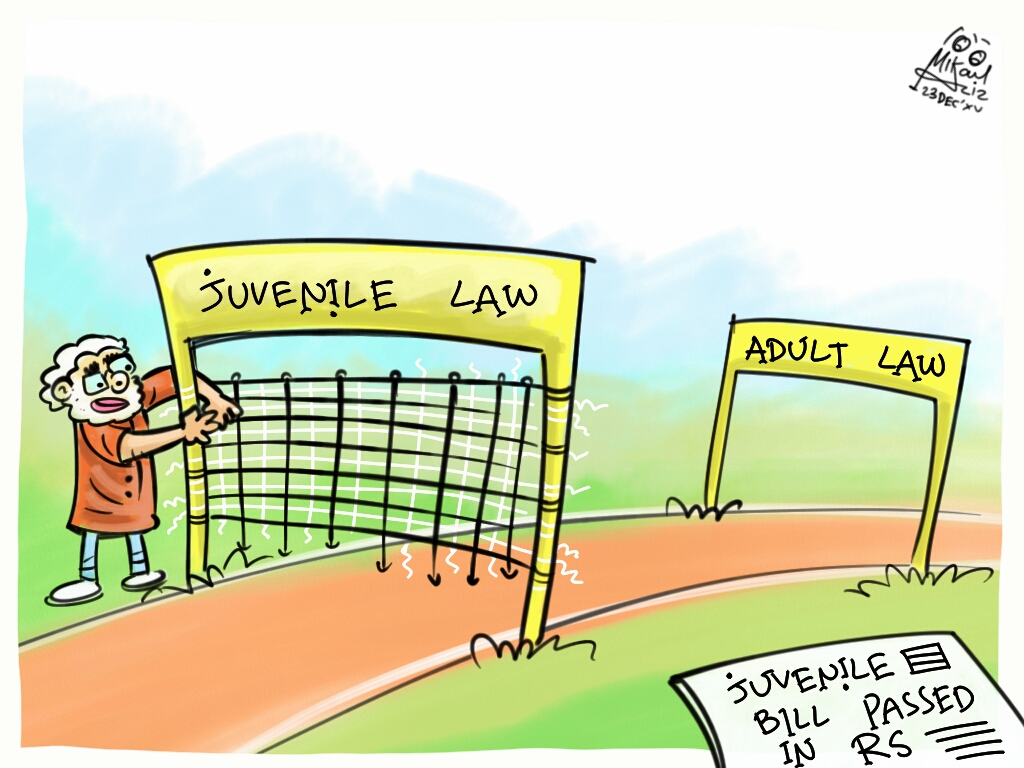Letter To The Editor: Black Day For Child Rights
Juvenile Bill

The passing of the Juvenile Justice Amendment Act in the Rajya Sabha marks a black day for Child Rights in India. The Juvenile Justice Law which is meant for the ‘care and protection’ of children, with the new amendments is retrogressive in nature and has failed to uphold its primary function of providing care and protection.
The particular clause as per which a child between the age of 16 – 18 years can be tried as an adults for even an alleged heinous crime, victimises children by putting them in a position where they will be tried as adults, but it does not make any provisions for the child to be defended, since an individual under the age of 18, cannot sign a contract of any kind; it violates the principle of natural justice.
Considering now under POCSO consensual sex below the age of 18 years is considered statutory rape, young people accused of the same would come under the category of heinous crimes and this amendment will also indirectly apply to them.
There are larger concerns about the provisions in the Bill with regard to matters of long term care and rehabilitation; however the biggest anxiety has been this particular clause which makes way for children between 16 - 18 years of age to be tried as adults for even alleged heinous crimes.
For so long several Child Rights organizations and individuals have raised valid questions regarding the provisions in the law, however, none were consulted in the decision making process. Even during the debate in the Rajya Sabha, several MP’s in their arguments said that the Bill needs to be further scrutinised by a special committee and also proposed amendments on specific recommendations on the floor of the house, but none were considered.



